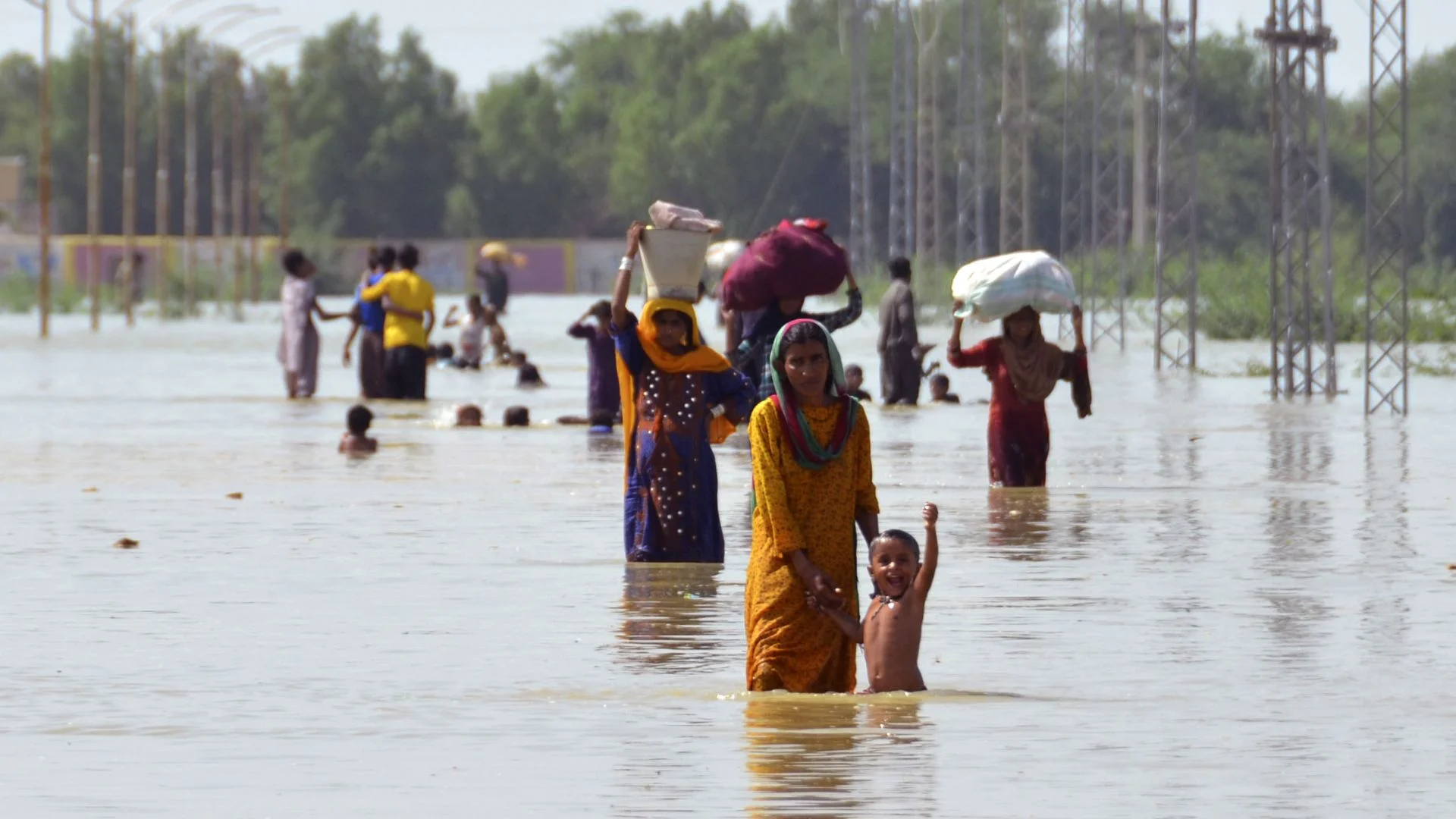
Flash floods triggered by the latest monsoon rains have inundated streets in southern Pakistan and blocked a crucial highway in the north, officials reported on Monday. The death toll from rain-related incidents since July 1 has now reached 209.
In the past 24 hours, 14 people have died in Punjab province, according to Irfan Ali from the provincial disaster management authority. The monsoon season, which spans from July to September, has been particularly severe, with climate change being blamed for the increasing intensity of rainfall.
The majority of fatalities have occurred in the provinces of Punjab, Khyber Pakhtunkhwa, and Sindh. Although this year’s rainfall is significant, it is less severe compared to 2022, when torrential rains caused widespread flooding, claimed 1,739 lives, and resulted in $30 billion in damages.
Zaheer Ahmed Babar from the Pakistan Meteorological Department indicated that the heavy rains are expected to persist throughout the week. Southern Pakistan, particularly the Sukkur district in Sindh, has experienced severe flooding, prompting evacuation efforts to move affected residents to safer locations.
In the north, heavy rains have led to landslides that have blocked parts of the Karakorum highway and damaged bridges, disrupting traffic. The government has advised tourists to avoid the affected areas.
Since the onset of the monsoon season, over 2,200 homes have been damaged across Pakistan. The National Disaster Management Authority reported that relief efforts are underway, including providing medical aid and food to those affected.
Neighboring Afghanistan has also faced flood-related issues. On Sunday, three people died when their vehicle was swept away by floods in Ghazni. Earlier in May, floods in northern Afghanistan resulted in 84 deaths and extensive damage.















